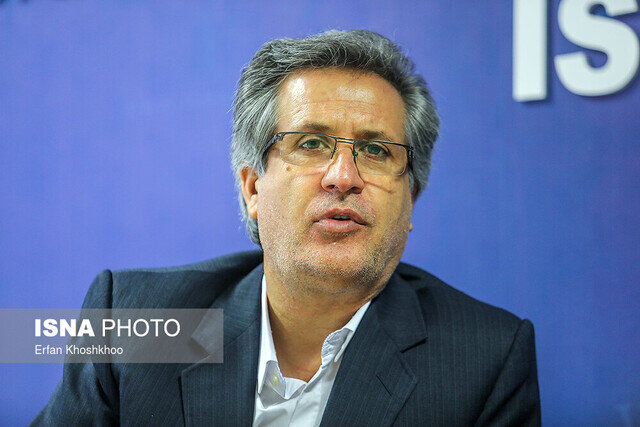Failure to join FATF will limit international economic interaction: MP

TEHRAN – Ali Ebrahimi, a member of the Hope parliamentary faction, has said that a failure to join the Financial Action Task Force (FATF) will limit Iran’s economic interaction with the outside world.
In an interview with ISNA published on Wednesday, Ebrahimi said that intensification of pressure against the country will do no good.
Foreign Ministry spokesman Abbas Mousavi has said that joining the FATF will serve the country’s interests.
“Our friendly countries have announced that they will not be able to work with the Iranian banks if Iran refuses to join the FATF and it will not be beneficial for us,” Mousavi said, the Hamshahri newspaper reported on Tuesday.
Reportedly, the World Federation of Exchanges sent a letter to Iranian stock market on Friday giving a 15-day deadline to announce the ways to observe the FATF regulations.
In an interview with ISNA published on Tuesday, political analyst Mehdi Motaharnia said if Iran refuses to join the FATF, an international consensus would be formed against it.
“Currently, North Korea has been blacklisted and Iran will be the second country if it is also blacklisted. If so, the first consequence will be an international consensus against Iran in the area of economic activities,” he said.
He noted that refusal to join the FATF will be “very dangerous” for Iran and will affect the future of investment in the country.
Iranian Deputy Foreign Minister Abbas Araghchi said on Monday that the Expediency Council takes the final decision on the FATF, expressing hope its decision would be in line with the country’s “expediency”.
Majid Ansari, a member of the Expediency Council, told IRNA on Monday that the council is still studying the CFT and the Palermo bill.
He declined to comment about whether the two bills would be finally rejected or approved by the council.
However, Mesbahi-Moghadam, another member of the council, told ISNA in an interview last month that the council has set aside studies to approve bills related to the FATF.
“Palermo and CFT will help the United States to identify the ways we circumvent the sanctions. We will not tighten sanctions by our own hands,” remarked Mesbahi-Moghadam, who served as parliament representative for two four-year terms.
“In a situation in which the country is under the most severe sanctions, joining such conventions is synonymous with self-inflicted sanctions. In the situation in which the United States seeks to limit the country’s financial relations, it is not beneficial to join institutions like FATF,” Mesbahi-Moghadam noted.
The overall atmosphere in the Expediency Council is against approving the FATF. The opposition to ratifying the FATF rose after the abrogation of the 2015 nuclear deal by the United States and the return of sanctions.
The parliament ratified the FATF in October 2018, however, the oversight Guardian Council rejected the bill.
Whenever there is a dispute between the parliament and the Guardian Council on a bill it is referred to the Expediency Council for final arbitration. Now it is up to the Expediency Council to reject or ratify the FATF.
The Paris-based Financial Action Task Force (FATF) said on October 18 that it has given Iran a final deadline of February 2020 to tighten its laws against money laundering in compliance with the global watchdog’s financial standards.
“If before February 2020, Iran does not enact the Palermo and Terrorist Financing Conventions in line with the FATF Standards, then the FATF will fully lift the suspension of counter-measures and call on its members and urge all jurisdictions to apply effective counter-measures, in line with recommendation 19,” the FATF said in a statement, Reuters reported.
One of the actions Iran is required to take to appease the FATF is to ratify the CFT, the convention combatting the financing of terrorism.
The government is pushing for the approval of the FATF.
Talking in a cabinet meeting on October 23, President Hassan Rouhani called on the Expediency Council to approve the FATF related bills.
“It is our pride that we fight terrorists and counter corruption, therefore we should not allow allegations of money laundering against our banking system,” Rouhani stated.
He added, “This hurts our country.”
Mahmoud Vaezi, the presidential chief of staff, said on October 30 that Iran should use the opportunity to join the FATF in order to avoid self-inflicted sanctions.
Vaezi said those who oppose joining the FATF should accept responsibility for their actions.
NA/PA
Leave a Comment